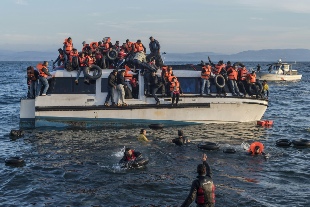
|
Last week, as Spain immersed itself in prawn- The lethal Atlantic crossing risked by these men, women and children has already claimed its first victims of 2025. On New Year's Day, two dead bodies were found on a boat that arrived in Tenerife with sixty people on board. This mounting immigration crisis highlights tensions between regional and central responsibility in Spain, just as last October's floods did. Echoing complaints made by Valencia's leader Carlos Mazón in the wake of that disaster, Clavijo claims that the Spanish government has abandoned the islands in their attempt to cope with unprecedented migration flows. Pedro Sánchez allocated 50 million euros to the region last year for that purpose, but clearly money alone is not enough. Last summer, the Socialist leader also tried to relocate several hundred of the unaccompanied minors currently in the Canaries to other parts of Spain, a proposal that was sensibly backed by the PP. In response to this apparently unforgivable concession to practicality, Vox quit several regional coalitions with the Conservatives (including in Valencia). |
|
|
I can't help suspect, though, that the Spanish government's hesitancy over the Canaries is not just due to tensions between central and regional power. Political discourse has become polarised to such an extent that, if a party talks
about controlling illegal migration, it's blackballed as "anti- Sánchez is not in denial to that extent, at least. And it is Vox that has done more than any other party in Spain to lower the tone of the debate about immigration. Its absurd line that every illegal immigrant, especially those who prefer the creed of Mohammed to that of Jesus Christ, is out to nick your purse and pension, would merely be laughable had it not already had so much influence. Much as I'd love to start 2025 on a note of optimism, I suspect that a solution to
the Canaries' troubles won't be found until the terms of the debate are changed.
So long as Sánchez is scared of being labelled "anti- |


